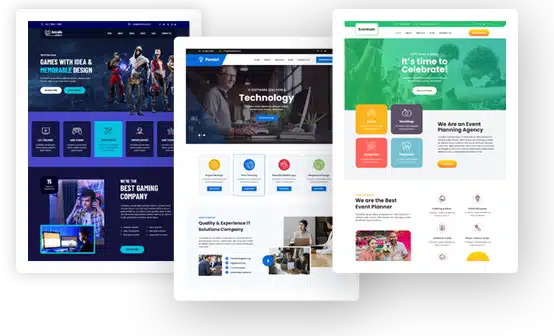Top 3 Reasons Why Developers Choose Python for Scraping

Web scraping is a significant business procedure of the 21st century. As important as it is, you’d think it’s an easy task to execute. Unfortunately, it’s not, especially when choosing which tool to use. While you can employ several third-party web scraping services, sometimes they don’t have what you want. Hence, it would help if you built your own.
You can use different programming languages to build a web scraper. But, developers love to use Python for the job. This article explores the three main reasons developers choose Python web scraping over other languages in building a web scraper.
What is web scraping?
Web scraping is a technique used to extract data from websites and other online sources. It is a powerful tool that can be used for various purposes, from gathering market research data to monitoring social media trends. One of the most popular programming languages for web scraping is Python.
What is Python Programming Language?
Python is a high-level programming language widely used for web scraping and data analysis. It is a universal language for various tasks, including web scraping, data visualization, and machine learning.
What are the primary use cases of the Python programming language?
Python is a general-purpose programming language, which makes it suitable for a wide range of use cases. Some of the most common use cases of Python include:
- Web scraping: Python is widely used because of its powerful libraries and frameworks, such as Beautiful Soup, Scrapy, and Selenium. These python web scraping tools make extracting data from websites easy and parsing it into a usable format.
- Data Analysis: Python is popular for data analysis because of its powerful libraries, such as Pandas and NumPy. These libraries easily clean, manipulate, and analyze large datasets.
- Machine Learning: Python has a wide range of machine learning libraries, such as TensorFlow and sci-kit-learn, which makes it an ideal choice for building predictive models and analyzing data.
Why you should build an in-house web scraping tool
While several web scraping tools exist online, there are several reasons to build yours. One reason may be to have more control over the data collected and to ensure that it is being collected in a compliant manner. Since you need to learn the nitty-gritty of how online scrapers work, it may be difficult to commit your company’s integrity into their hands.
Additionally, a custom web scraping tool can be tailored to the organization’s specific needs, such as collecting data from particular websites or in a specific format. Building a web scraping tool in-house can also lead to cost savings as the organization would not have to rely on third-party tools. Don’t forget to implement residential proxies, as they can enhance anonymity and prevent IP bans, providing an extra layer of protection for your web scraping activities. Finally, having an in-house web scraping tool can increase the organization’s ability to scale its data collection efforts as needed.
Three main reasons to use Python for web scraping
Python web scraping has a ton of features to offer. These functionalities make it the preferred programming language to scrape the web.
-
Libraries
Python has many libraries and modules that make web scraping easy and efficient. Some popular libraries for web scraping include BeautifulSoup, Scrapy, and Selenium, which provide a wide range of functionalities for parsing and manipulating HTML and XML documents. These libraries also support various web scraping techniques, such as CSS selectors and XPath expressions, making extracting the desired data from web pages accessible.
-
Readability and simplicity
Python’s readability and simplicity make it an excellent choice for web scraping. The language has a relatively low learning curve, making it easy for beginners to get started with web scraping. Additionally, Python’s clear and concise syntax makes it easy to understand and maintain web scraping scripts, even for more complex projects.
-
Versatility
Python’s wide range of applications makes it versatile. Python is widely used in data science, machine learning, and artificial intelligence, making it an excellent choice for web scraping projects that involve data analysis and processing. Additionally, Python can be used to interact with APIs and automate web scraping tasks, making it an excellent choice for large-scale data collection projects.
Conclusion
Python is a powerful programming language widely used for web scraping and data analysis. It has a large number of libraries and frameworks that are specifically designed for web scraping. Additionally, Python’s simplicity and readability make it an ideal choice for beginners and experienced python developers. Python is also highly scalable, making it suitable for large-scale web scraping projects. These features make Python one of the best choices for web scraping. As always, it’s important to note that web scraping can be against the terms of service of some websites, and it’s recommended to check the terms of service before starting to scrape. See this article to learn more about Python web scraping.

